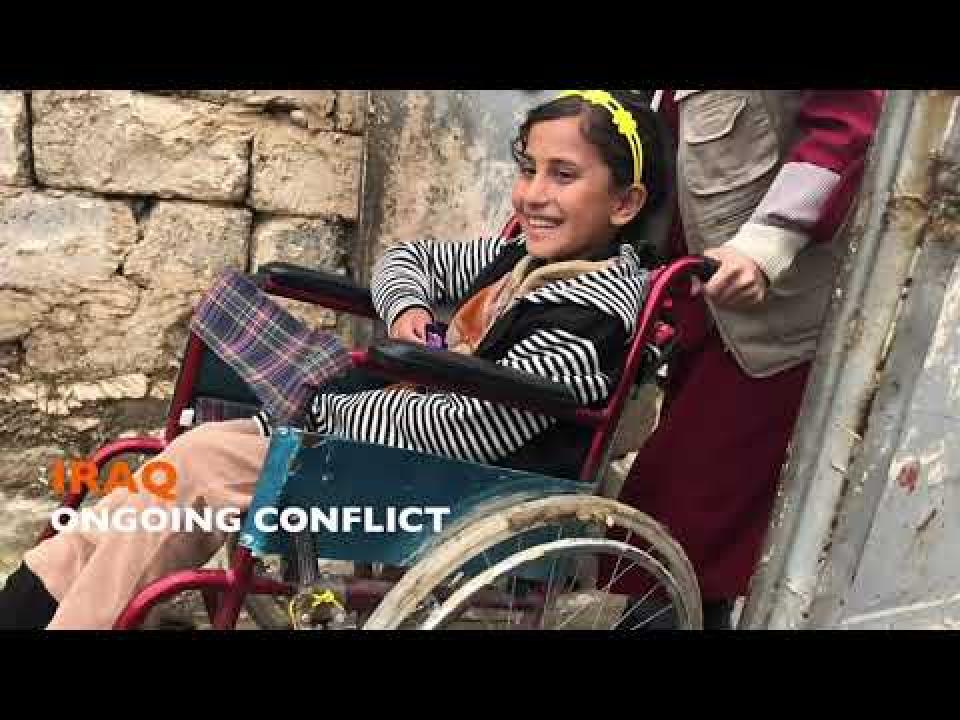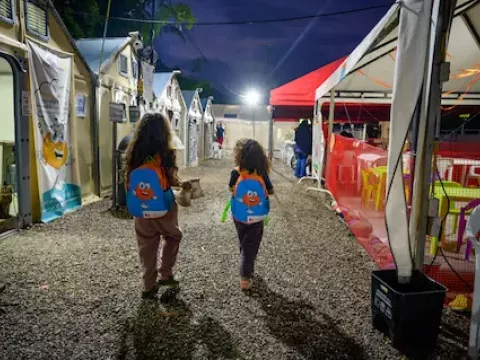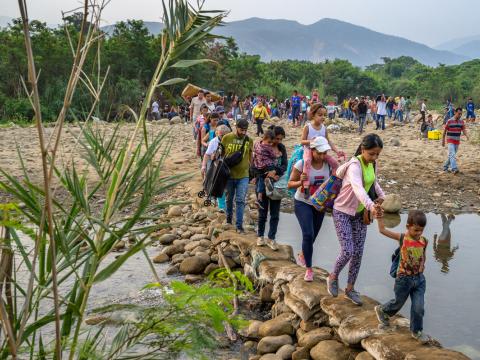
Faith and fragility: Our calling to do more in dangerous places
By Andrew Morley, World Vision International President and CEO
It is the calling of the Church to confront spiritual darkness. In World Vision, we believe it is our calling to confront physical, material darkness. The nature and location of this material darkness in the world has shifted in our generation – it is now in the hardest to reach, most fragile and dangerous places. And so our work must shift with it.
We know progress is possible. More than one billion people have been lifted out of extreme poverty since 1990 with major gains made in health and education and in other areas that contribute to human well-being. However, to those still living in extreme poverty – those affected by conflict, climate change and inequality – these statistics are meaningless. Their lived reality remains brutal, their lives can still change in an instant, especially for the most defenceless – children. Poverty has been pushed into the shadows, hiding in new places of darkness.
Our roles, our callings, are different, but there is significant overlap between the Christian Church and World Vision in one, life-saving, life-changing area. We share a calling and desire to seek out vulnerable, forgotten people in the world’s hardest places, to make real to them Jesus’ offer of life in all its fullness, and to reflect His light in our world. This light is brightest when it shines in the darkest places.
Today, two billion people live in countries affected by fragility, conflict and violence. If current trends persist, more than 80% of the world’s poorest people will live in places affected by fragility and conflict by 2030. As a faith-based organisation, we cannot afford to look away or simply focus our efforts in more stable, comfortable settings. This is why World Vision has committed to upping our presence in these difficult contexts in order to serve those children most in need.
This is more important and urgent than it has ever been before. Last month, I stood on the iconic bridge between Venezuela and Colombia in the town of Cucuta. Tens of thousands of Venezuelans cross the bridge every day, in desperation: in search of medical help, somewhere for children to go to school, or to find food. Seeking light amid the darkness. Thousands stay, seeking refuge, but many return home at the end of each day.
I met 16-year-old Sofia*, from Venezuela, who is in school in Colombia. Through tears, she asked me to be a godparent to her son Carlos, who is three years old and in pre-school. Carlos was born after Sofia was raped four years ago, during a period of suffering in Venezuela that we still know so little about. After experiencing the darkness of predatory abuse, being forced to flee their home to escape hunger, and now living under a cloud of poverty and lack of opportunities, no one deserves to feel and experience light more than Sofia and Carlos.
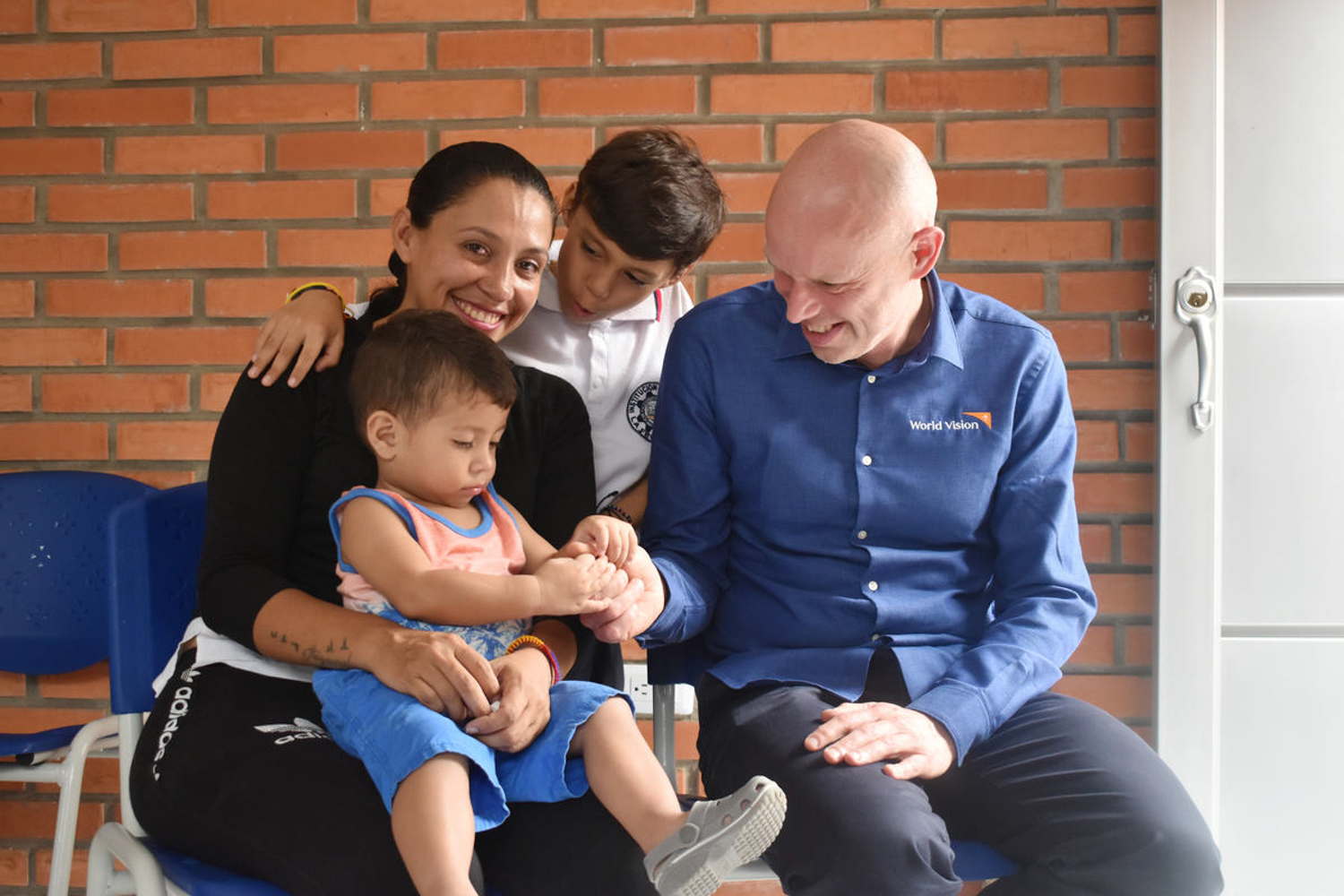
Fragile contexts, like Venezuela, Yemen, Syria, Afghanistan and the Central African Republic are characterised by violence, disaster, mass migration and political instability. Children trapped in these situations are highly vulnerable. They are growing up in the places where most steer clear of going - places written off as hopeless, too difficult or dangerous to work in. Places where churches in richer countries are currently less likely to be involved.
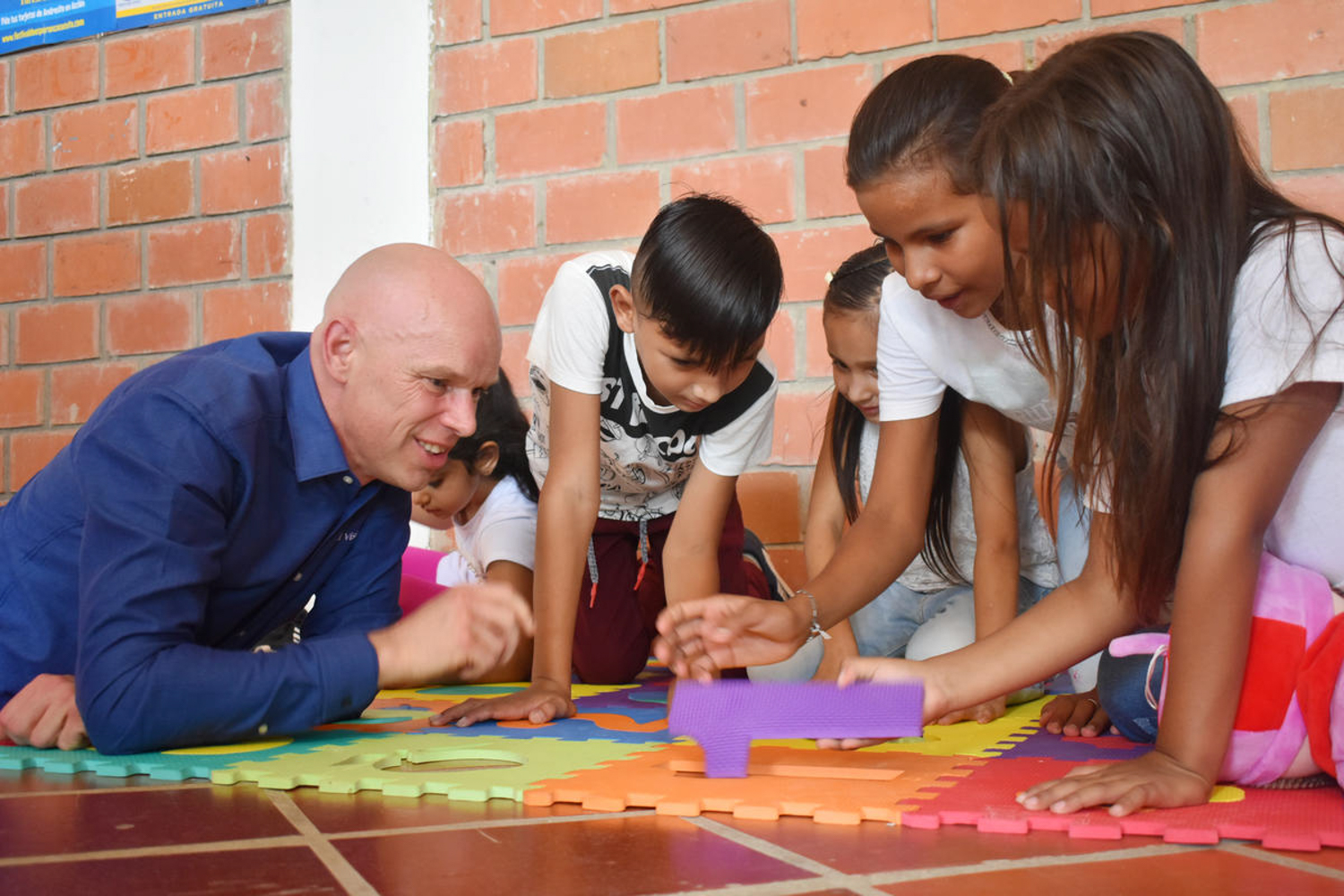
Why is that the case? And what is it going to take for a new generation of passionate, globally-connected Christians to take their stand? We have seen young people rally all over the world in the cause of climate change, how can we harness their energy and zeal in the cause of their counterparts trapped in these desperate fragile places?
I don’t have all the answers, but I want us to continue to ask the questions. We are doing exactly this in a first-of-its-kind study we’re currently conducting, with Barna Group, speaking with young people around the world about their views of faith, connectedness and overcoming darkness.
Shining light in darkness is not a short-term mission but it’s where the paths of the church and World Vision cross. We recognise that our faith often compels us to take the more difficult road, which is why we commit not to turn our backs on those most in need but to meet and help them wherever they may be.
*Names have been changed.
